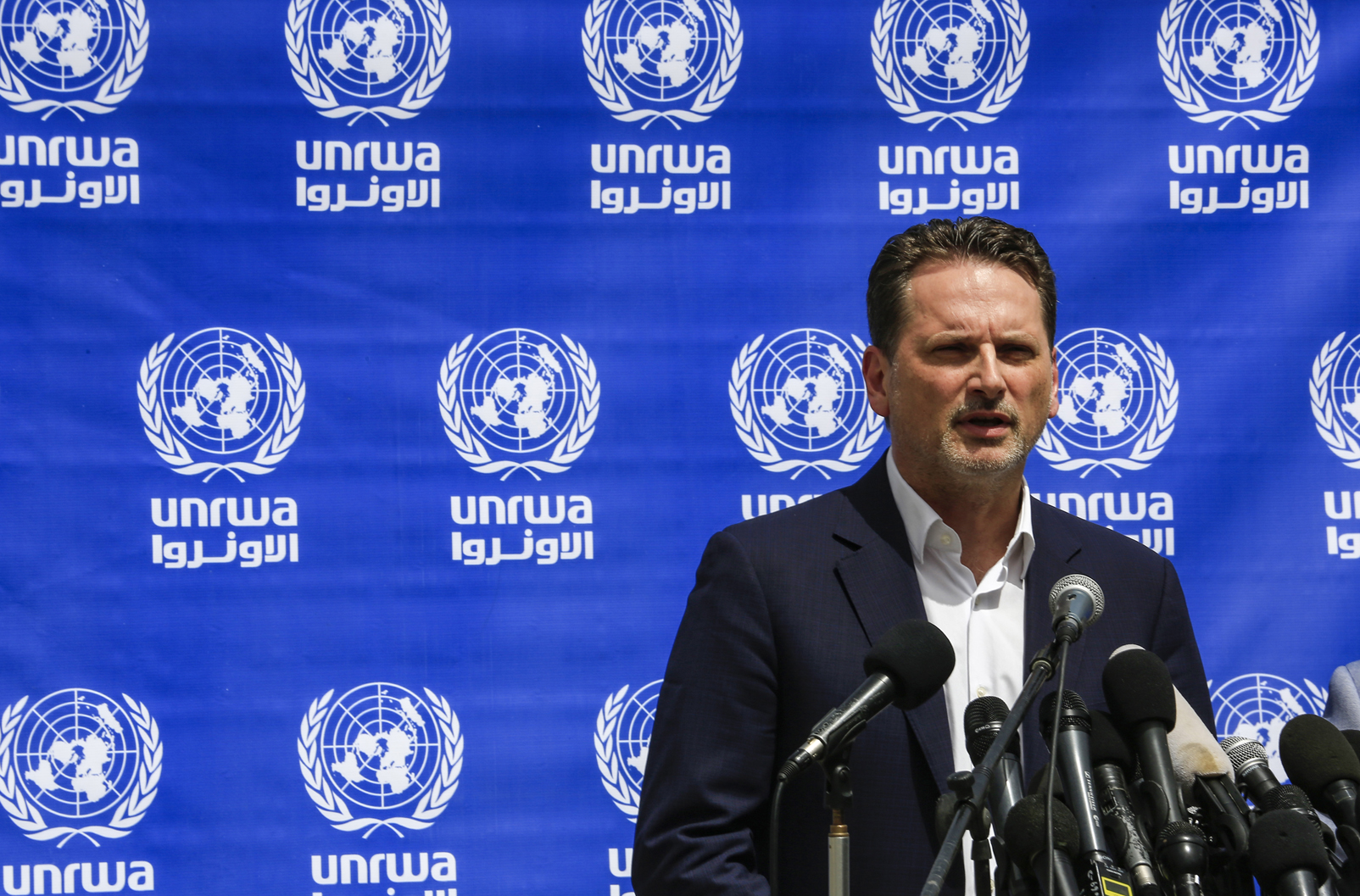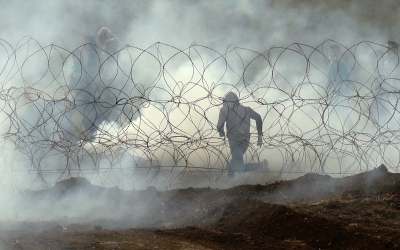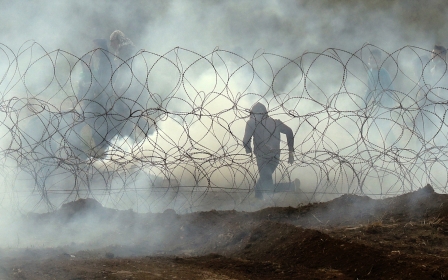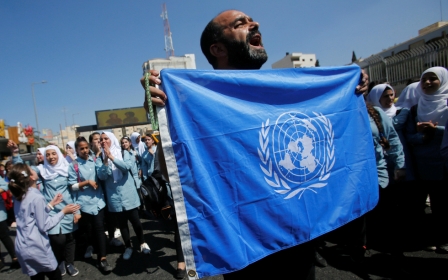UNRWA chief bashes Kushner peace plan ahead of unveiling

The head of the UN's agency for Palestinian refugees, Pierre Krahenbuhl, bashed the Trump administration's approach to Middle East peacemaking just days before the White House unveils its long-awaited economic proposal in Bahrain.
Krahenbuhl, commissioner-general of the UN's Relief and Works Agency for Palestine Refugees in the Near East (UNRWA), said on Friday that the White House's initiative has sidelined the Palestinians and raised their levels of "anxiety".
"Peace agreements work if people are included in the process," Krahenbuhl told reporters in New York.
"We need a political horizon, but I'm just seeing very little indication that we're progressing on that front in ways that would lead us to believe that Palestine refugees would feel included in a solution."
Palestinian officials say they will not attend a workshop in Bahrain on 25 June, where the United States is due to roll out the economic part of a peace proposal that many Palestinians worry will kill plans to one day run their own country.
Recent moves by President Donald Trump have left Palestinians worried - including a decision in 2017 to recognise Jerusalem as Israel's capital and move the US embassy there from Tel Aviv, said Krahenbuhl.
US cuts to UNRWA
The Trump administration has also cut aid to the Palestinian Authority and UNRWA, shuttered a Palestinian office in Washington and endorsed Israel's sovereignty over the Golan Heights.
"There's no doubt that, last year, a combination of the announcement on Jerusalem and the US embassy move plus the funding cut to UNRWA - that created, undoubtedly, significant levels of anxiety among Palestinian refugees," Krahenbuhl said.
The Swiss humanitarian was speaking with reporters ahead of two key fundraisers for Palestinians - the Trump administration's unveiling in Bahrain, and a meeting in New York on the same day for UNRWA donors to plug the gap left by recent US funding cuts.
UNRWA needs to fill last year's $211m funding shortfall and receive most of its $1.2bn budget for 2019. Without quick cash, the agency will have to cut food handouts over the summer, Krahenbuhl warned.
The agency has suffered a financial crisis since the US, historically UNRWA's largest single donor, cut its contributions from $360m to $60m in 2018 and then down further to zero for 2019.
In a recent address to the UN Security Council, US Mideast envoy Jason Greenblatt said UNRWA "has failed the Palestinian people" and that neighbouring countries should run the agency's schools and health clinics.
Krahenbuhl rejected Greenblatt's criticisms and said UNRWA was both efficient and competent. Despite the row, the UN fundraiser in New York and the US workshop in Manama were not in competition, he added.
"Contrary to what you may expect, I do not see any elements of tension between a conference and workshop that is being organised in Bahrain and our own focus," Krahenbuhl said.
"Our focus is a very immediate one - we have to ensure that food assistance continues to a million people, not in two years, but today and tomorrow."
The US has billed its two-day, 25-26 June gathering in the Gulf kingdom as an economic overture to its long-delayed Israeli-Palestinian peace plan, widely referred to using Trump's "deal of the century" branding.
Israeli government officials have not been invited. Palestinian leaders - and the vast majority of its business community - are shunning the conference spearheaded by Trump's son-in-law and senior adviser, Jared Kushner.
While details of the US peace plan are still sketchy, Palestinians fear it will scrap the two-state solution - a long-standing international formula that envisages an independent Palestinian state in Gaza, the West Bank and east Jerusalem co-existing with Israel.
UNRWA was established in the wake of the 1948 Mideast war surrounding Israel's creation to aid some 700,000 Palestinians who fled or were forced from their homes by fighting. Absent a political solution, the UN General Assembly has repeatedly renewed UNRWA's mandate.
Today, the agency serves about 5 million Palestinians in Gaza and the West Bank, as well as Lebanon, Jordan and Syria, which view it as a vital safety net, providing services that governments do not.
Middle East Eye propose une couverture et une analyse indépendantes et incomparables du Moyen-Orient, de l’Afrique du Nord et d’autres régions du monde. Pour en savoir plus sur la reprise de ce contenu et les frais qui s’appliquent, veuillez remplir ce formulaire [en anglais]. Pour en savoir plus sur MEE, cliquez ici [en anglais].






